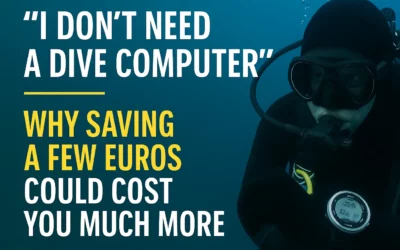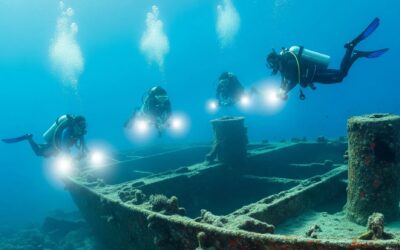Plastic – a material of daily use that at first sight seems harmless. The plastics have become a material present in almost every aspect of our life. From computers and smartphones, through bottles of water and soft drinks and even in our toothpaste we can find this common material. So, it’s not surprising that, like in many of the other things that humans consume, a part of those plastics that we use every day ends up in the Oceans.
HOW MUCH PLASTIC ENDS UP IN THE OCEANS?
The University of Georgia together with the University of California conducted a study about plastic pollution in 2010. Te conclusions of this study were:
There are 192 countries located along an oceanic coast. In 2010, the 192 countries in total generated 275 million metric tons of plastic waste. According to the researchers’ calculations, 5 to 13 million metric tons of plastic came to our oceans during that year, and most of that waste comes from people who live just over 30 miles from the coast. “Our estimate of 8 million metric tons in the oceans in 2010 is equivalent to five plastic-filled supermarket bags per foot of coastline in the world,” said study author Jenna Jambeck, environmental engineer at the University of Georgia.
WHY ARE THE PLASTICS HARMFUL FOR THE ENVIRONMENT?
It is estimated that each year plastics kill 1.5 million animals. And in this, we have no excuse. The contribution of plastic to the oceans is the 100% fault of the human being. How does this affect the ocean ecosystem?
As it’s commonly known, plastic is not biodegradable, it takes about 100 years to disappear, in average. Needless to say, the effects of marine pollution caused by plastic are immeasurable.
The plastic interrupts the entire biogeographic cycle and causes problems for the entire marine ecosystem. Several marine species are on the verge of extinction due to this type of ocean pollution. Plastic threatens the total existence of various forms of marine life, from smaller fish to large mammals and amphibians, and also to birds that depend on oceanic life forms for their food needs.
The consumption of plastic by sea creatures causes severe digestive problems.
Plastic includes toxic chemical agents. One of those toxic substances is Bisphenol A. This compound pollutes ocean waters causing an increased ocean spill.
Loose plastic nets used for fishing and plastic boxes cause oceanic debris by drowning life forms or becoming entangled in precious reefs, causing them to break.
WHAT CAN YOU DO TO HELP?
1 – Avoid the abusive use of any type of plastic bottles. Water bottles represent one of the main problems of waste worldwide, since these are not always fully recyclable. For example, you can buy 10l bottles and use a bottle type that exist for athletes and fill that bottle of the cans
2 – Forget plastic straws. It sounds silly, but the plastic straws are totally dispensable. Just out of habit, we use a lot of straws for nothing, when we can simply drink from the glass without problems. If you do not know the damage that a simple plastic straw can cause to the environment, I advise you to watch this video where a sea turtle will tell you:
3 – Fall in love with reusable bags. Nothing more obvious, as far as I know. However, this simple change is of great importance for the environment, you just have to change the plastic bags for cloth bag or a bag made from plant material
4 – Avoid frozen foods in supermarkets. The frozen area is full of unnecessary packaging that fill our dumps. Avoid going through it can help you end two evils at once: Reduce plastic pollution and and the overload of landfills.
5 – Remove chewing gum from your life. Most current chewing gums contain plastic in their composition. Although there is technology to recycle this product, it is very difficult to find places to do so.
6 – Buy products packaged in cardboard or glass. In the supermarket, generally, brands have different types of packaging for a particular product. Whenever you have an option, say no to plastic packaging, even if it’s cheaper. Both glass and cardboard are easier to recycle and, if they are improperly removed, they take less time to decompose and, above all, they are much less harmful to the environment.
7 – Avoid disposable products. Stopping buying this type of products is a very important option for the reduction of useless plastic. And we’re not talking about its occasional use, maybe out of necessity you ever need to use them, which happens sometimes. We speak of those who systematically buy dishes, cutlery and disposable plastic cups when they could calmly use normal plates and glasses
8 – Use cloth diapers. It will do well for your baby’s bum and the environment (after all, a single disposable diaper takes between 400 and 500 years to decompose). If you do not want to try the cloth ones, you also have the option to try diapers made with materials that are more respectful with the environment.
9 – Do not use disposable razors.
10 – Reuse plastic containers: There is a large number of foods that are packed in glass jars. Use them to store future foods.
 11 – Clean Up: It’s always a good time to do a Beach Clean Up. Or a Street Clean Up. Or a clean up mountain. Wherever you see a loose plastic, grab it and make sure it will end up in a safe place and not in the environment. If you are diving, always carry a net or a container to store all the waste you see during the dive.
11 – Clean Up: It’s always a good time to do a Beach Clean Up. Or a Street Clean Up. Or a clean up mountain. Wherever you see a loose plastic, grab it and make sure it will end up in a safe place and not in the environment. If you are diving, always carry a net or a container to store all the waste you see during the dive.
12 – Mentalize: Explain the situation to your family and friends. Make them participate in a beach cleaning or give them bags of clothes and take advantage of the excuse to explain and educate them.
13 – Do not give up. Your help is of vital importance. We need you. The Oceans need you. No matter how hard the task seems to you. Do not give up
14 – Support any Online / Social Media initiative. The network today is, perhaps, the best option to be heard or support projects in defense of the oceans. Always show your support through likes, shares, etc to articles like this or campaigns to defend our marine ecosystems.
The problem is global. It is not just a future threat or a statistic of what might happen. Instead it’s already happening today! As divers we have the responsibility of taking care of our most beloved garden: the Oceans. It is very important that you realise that your attitude can change things. In fact, the change of attitude in each one of us may be the only solution… If you think that a person alone can not do anything, remember that you are not alone, and, together we can add up so that the change is real. Do not give up. Remember that the first step to failure is not to start. And the first step to success is, precisely, to start.



